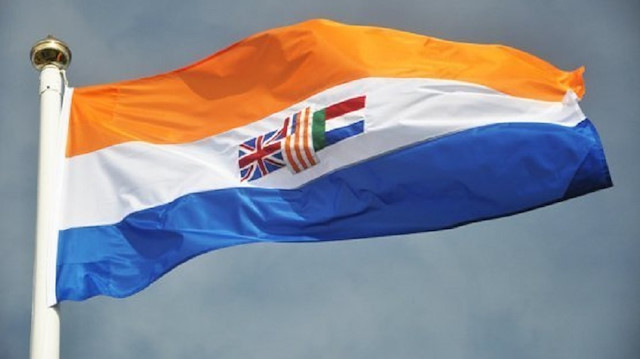Court in Johannesburg rules that 'gratuitous display of apartheid flag' is constant reminder of oppression
JOHANNESBURG (AA) - A court in South Africa has partially banned the display or flying the old apartheid era flag saying it amounts to "hate speech and harassment" in a country that witnessed decades of racial discrimination.
"The gratuitous display of the old apartheid flag virtually communicates the message of belief in or support of racism, white supremacy, and subjugation of black population," Judge Phineas Mojapelo said in his ruling late Wednesday at the Johannesburg equality court.
The Nelson Mandela Foundation and the South African Human Rights Commission lodged a complaint to the equality court after a group of white protesters displayed the apartheid flag while protesting against the alleged murder of white farmers in 2017.
But, AfriForum, a lobby group that mostly represents white South Africans, challenged the complainants in court saying their action would threaten freedom of speech. In his ruling, Judge Mojapelo said the flag is viewed as a constant remainder of apartheid. Mojapelo said it could now be only displayed for historic purposes in museums, or for academic, journalistic or artistic purposes. He also said the continued public display of the flag by some people was hurtful.
In their argument, the Nelson Mandela Foundation testified that the old flag represented nothing other than the inhumane system of racial segregation and subjugation that governed South Africa before April 27, 1994 when the white minority rule ended.
Those who continue to display the apartheid flag face a hefty fine or will be subjected to community service but will not be sent to jail. The apartheid flag made of orange, white and blue colors was adopted by the white minority rule in South Africa in 1928. The flag represented a number of colonies including the Dutch Prince's flag, the British Union Jack and several others, which remind the country's bitter colonial past.
"We are a rainbow nation. I don't see why some people continue displaying the apartheid flag which reminds us of our past. What we need is to move forward as a united country," 57-year-old Malume Mike, a Johannesburg taxi driver told Anadolu Agency on Thursday.
Many South Africans took to social media sites to welcome the ruling saying all South Africa need to be united in their diversity.



